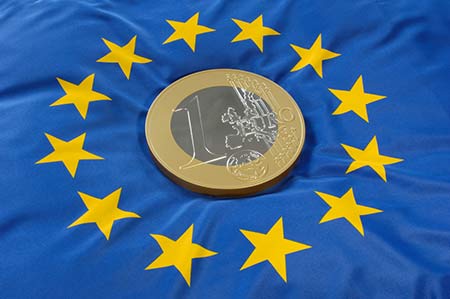The Euro (EUR) to Pound (GBP) Sterling exchange rate softened on Thursday as the Pound rallied following the release of a poll that showed that a lead by Scottish nationalists narrowed as the No to Independence took the lead.
The poll published in a Scottish newspaper showed that the No campaign retook the lead after 53% of those polled said that they will support the United Kingdom staying together.
The news eased some of the concerns over the implications that Scottish Independence would cause for the Pound and the UK economy as a whole.
The Yes campaign to independence campaign took another knock after Royal Bank of Scotland, Llyods Banking Group and Clyesdale bank announced that they would all move operations into England in the event of Scottish Independence.
Bank of England Governor Mark Carney also outlined that a currency union would be highly unlikely, as an independent Scotland would need to raise significant monetary reserves for it to be viable.
Business leaders have warned that a Yes vote would lead to higher prices for Scottish consumers and warned that there will be economic upheaval in the aftermath of such a result.
‘From a business perspective there will be economic consequences to a Yes vote, not just in uncertainty but some of the turmoil we are hearing about. In addition, there is the case that it costs more to trade in parts of Scotland and therefore those hard costs, in the event of a yes vote, are more likely to be passed on. For various reasons – regulation and transport costs etc – it does currently cost more money to serve parts of Scotland,’ said the chairperson of John Lewis Sir Charlie Mayfield.
Sentiment towards the Euro remains soft after the European Central Bank took economists by surprise by cutting interest rates to a new record low and announced new easing measures last week.
Economic data released on Thursday is also weighing upon the single currency. Data out of Germany, the Eurozone’s largest economy showed that inflation remained stuck at its lowest level in more than years in August.
The data released by federal statistics office Destatis calculated that German inflation this month stood at just 0.8 percent year-on-year, unchanged from July. Confirming a preliminary flash estimate released at the end of last month.
The last time inflation in Germany was lower was in February 2010.
The report heightened concerns over the threat of deflation.
Market attention will now turn to Friday’s Eurozone Industrial Production data.
Euro Exchange Rate News:
[table width=”100%” colwidth=”50|50|50|50|50″ colalign=”left|left|left|left|left”]
Currency, ,Currency,Rate ,
Euro, ,US Dollar,1.2919 ,
,US Dollar,1.2919 ,
Euro, ,British Pound,0.7950 ,
,British Pound,0.7950 ,
Euro, ,Australian Dollar,1.4147 ,
,Australian Dollar,1.4147 ,
Euro, ,Canadian Dollar,1.4198 ,
,Canadian Dollar,1.4198 ,
[/table]



